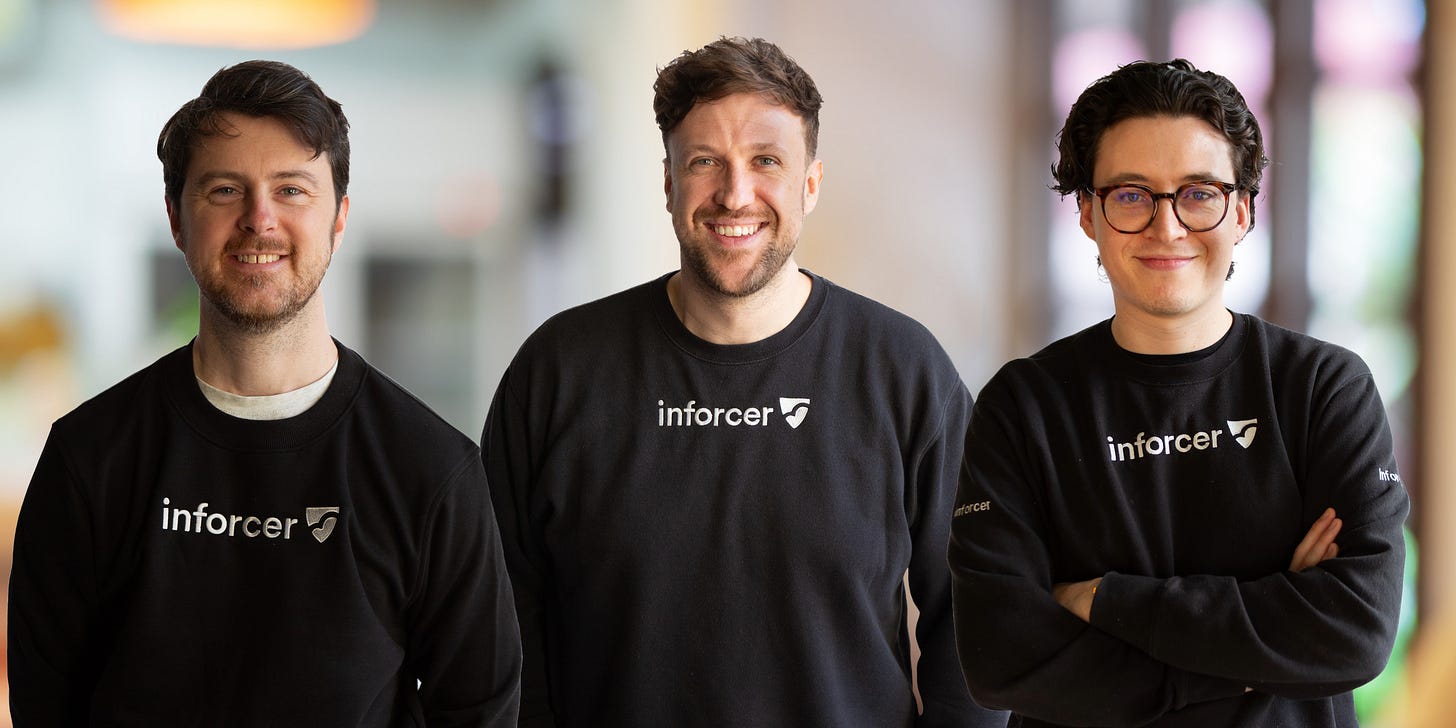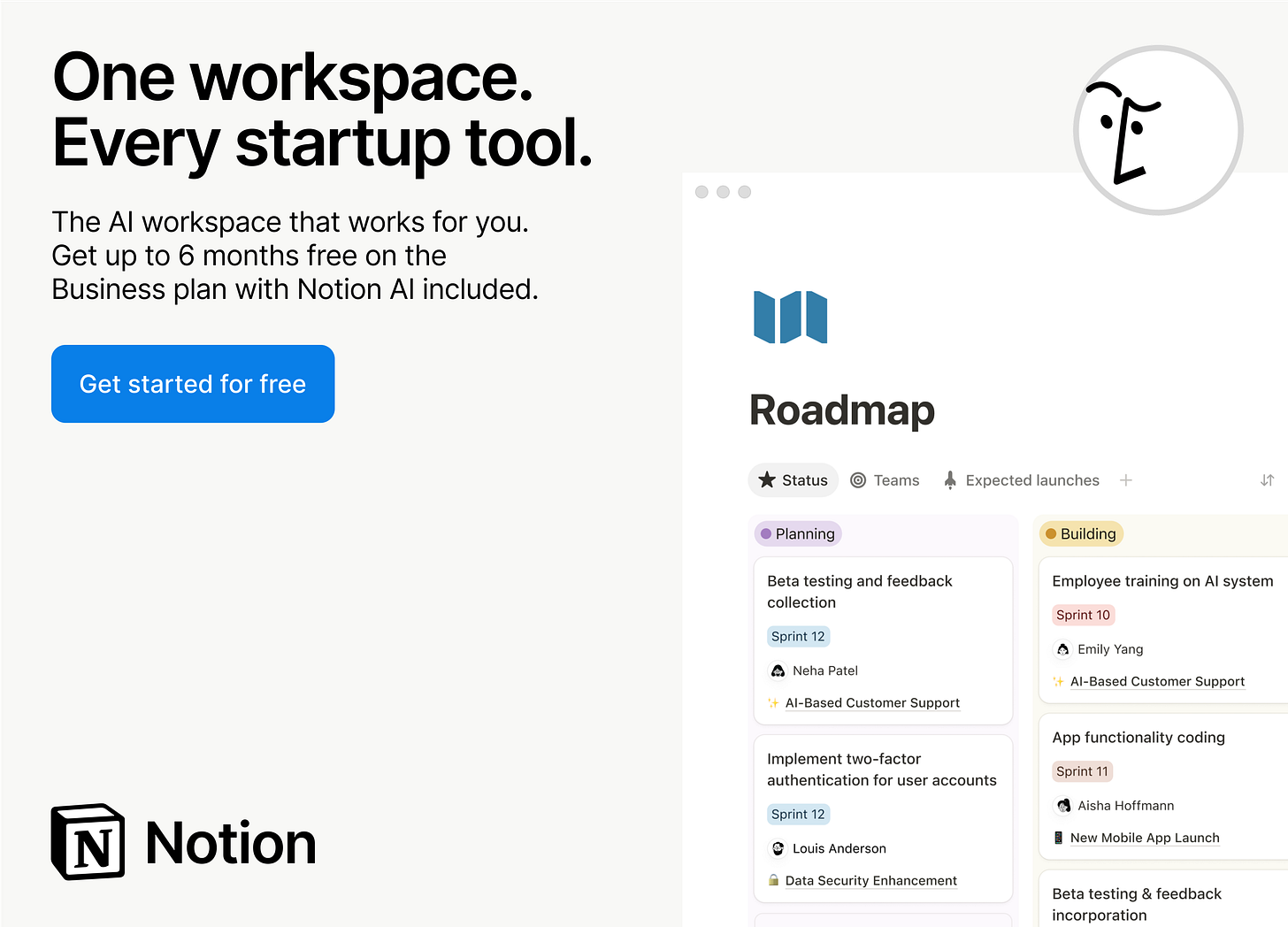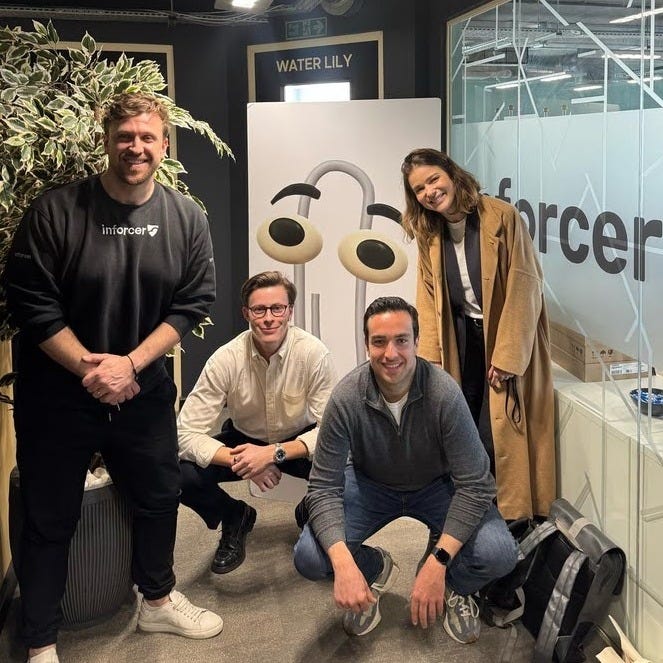The British Startup Helping SMBs Get Ready To Use AI
Inforcer's software helps IT shops manage security for SMB clients. Now the startup's raised $35 million in a Series B round to get them AI-ready, too.
The Upshot
Far from Silicon Valley’s heavily hyped AI companies, inforcer CEO Jamie Daum works with a very different kind of customer: IT shops.
Such firms, known as managed services providers, or MSPs, don’t get much attention from the wider tech community on social media or in the press. The services they offer are fairly humble by technologist standards: setting up your Microsoft 365 account permissions, or updating your antivirus software.
But for thousands of small and medium-sized businesses – the long tail of the economy for whom AI is still a newer concept – they provide increasingly important support.
“This market has always been fairly commoditized, it’s been seen as a cost center by a small business,” Daum tells Upstarts. “AI has the ability – for the first time – to turn the MSP from a cost center into a profit center for every small business, driving true productivity.”
We’ve written a lot about frontier AI labs at Upstarts, from the salary boom for their researchers and buzzy startups emerging from them. And we’ve covered a number of startups building the new AI software stack for tech-savvy companies, from outbound sales to generated code testing, headless browsers and, of course, AI-powered meeting notes.
Inforcer is interesting because it doesn’t fit in. If there is a cool kids’ table of AI startups, it’s not even in the same room, sitting in the back with the AV club instead (in this case, the IT services companies – not the computer science nerds running the joint).
But so many companies haven’t fit into the AI transformation story yet, either. About one million businesses in the U.S. use Microsoft 365 today, and nearly four million worldwide. For them, Microsoft’s 365 Copilot tool can often represent the first real business exposure to AI. By selling software to a class of companies that help those SMBs take advantage of those tools, inforcer (the lowercase is intentional, if misguided) has a reach that suddenly looks very big – and more similar to its buzzier software startup peers.
More than 800 MSPs work with inforcer today, in turn serving nearly 50,000 businesses and between three and five million users. Customers pay inforcer between $15,000 and $20,000 per month at the top end, down to a couple hundred dollars. Sales grew 10x over the past year, the startup says; inforcer won’t say what that adds up to, but Upstarts estimates revenue in the millions.
And less than a year after raising a Series A funding round led by Meritech Capital, the first time that firm has led a round so early, inforcer has now raised a $35 million Series B funding round led by Dawn Capital. Inforcer isn’t disclosing its valuation, but the round values the startup at just over $200 million, a source with knowledge tells Upstarts.
Inforcer plans to use that money to double down on an AI push, all from within Microsoft’s walled garden. “It’s a great place to be putting our chips,” says co-founder William Connor.
More on how inforcer is helping SMBs to modernize – and why there’s opportunity at the far end of the startup spectrum – below.
Presented by Notion.
From idea to IPO, Notion grows with your team. Move faster with structure for your docs, projects, and workflows — while Notion AI captures meeting notes, summarizes docs, and lets you search across your workspace and connected tools. 94% of the Forbes AI 50 companies use Notion to build faster, every day.
Tenant Time
As you might hope for a company selling to MSPs, inforcer’s founders come from deep within that domain. Daum spent more than five years at a European vendor eventually merged by private equity with Datto, then built an IT agency of 30 experts, called Continuity Marketing, that he sold in 2022.
Connor, who had worked at another leading player in the industry through its own $1.5 billion acquisition, was part of the Continuity team; so was inforcer’s third co-founder, Richard Thompson, now the startup’s chief financial officer.
They launched inforcer in 2022 with a basic idea: while a number of companies have built viable businesses by selling to the MSP ecosystem, an opportunity existed for a new player to help them speed up their work with customers in the Microsoft 365 stack.
The math, says Daum, was simple. One IT services shop might need to regularly update policies for each of its customers – potentially hundreds of them – in a handful of different places, just to stay current and compliant with Microsoft 365’s software policies and updates.
“When you’re an enterprise with one tenant to manage, it’s not that bad,” he says. “But when you have 200 tenants times five, that is a huge amount of work to actually be able to go and deliver, and there’s no built-in automation to replicate it.”
Many small businesses are paying these vendors $1,000 or $2,000 per month, Daum says; not enough to cover the placement of five or six engineers on the task. That’s where inforcer comes in. Its software allows vendors to set a standard baseline for not just one, but all of its customers of a certain type, then push changes and deployments across all of them at once.
Gary Melvin, chief technology officer at Nostra, one of Ireland’s biggest IT service providers, says his security engineers would previously have to spend several days tinkering with the configurations to standardize new customers on Nostra’s preferred Microsoft 365 security setup. Nostra’s clients, particularly as it has acquired other MSPs and brought their own customers into the fold, might call different security groups by slightly different names, such as ‘frequent travelers’ or ‘frequent travelers group’, that sound trivial but would break if left as is.
“Customers are getting a much better level of security, and more streamlined support,” Melvin says.
Last month, a Microsoft update to allow OneDrive business users to sync their file storage and sharing with their personal OneDrive accounts set off alarms. “Microsoft are trying to solve for productivity and collaboration, that’s what they want, right?” says Connor. “But in the world of MSPs, that release was really dangerous, because now anyone could just copy all of their work files.”
In that scenario, inforcer’s close relationship with Microsoft as a partner – the startup says it talks to product counterparts at the giant on a weekly basis, and receives early API access – came up clutch. Inforcer pushed out a new policy to its customers at the same time as Microsoft’s release of the feature, allowing them to block its use.
AI ‘Reality’
While inforcer initially focused on the security side of Microsoft, conversations these days are all about Copilot. It’s what customers are hearing from their own clients, the small businesses: “All the conversations that we’re having now are AI based,” says Melvin at Nostra, which he describes as six months into its own AI product journey. “Every C suite in the past six months, AI is what they want to do.”
The typical small business today isn’t ready to simply turn on AI like a light switch, inforcer’s founders argue. “If you let Copilot loose on all of your documents, can someone say, ‘how much does the boss earn? Tell me more about everybody’s paychecks this month.’ That isn’t scalable,” argues Connor.
What business data should be allowed into the Copilot AI search and and answers engine, and how it should be monitored and protected, are policies that inforcer is now focused on pushing out to its customer base. About 80% of that work can remain true across a baseline for a wider customer base, meaning the MSPs can focus their time on the smaller percentage of work unique to a particular client’s needs.
It’s not rocket science – enterprises and tech-savvy fellow startups have teams labeling data or hiring outsourced teams to do so, and often mix and match AI tools. But such work is valuable – and a large, growing market – says Dawn Capital partner Evgenia Plotnikova, who led inforcer’s new investment.
“In VC land, we live off the hype of $100 million seed rounds, and we forget the day-to-day reality of the world,” she says.
One important distinction to make: Inforcer sells software to services providers, but it doesn’t want to get deep into lower-margin services itself. The startup now employs 110 people, up from just eight a year and a half ago, in London and outposts in Amsterdam, Copenhagen, Los Angeles, Tampa and in Australia. More than 1,000 MSPs are part of its wider community, online in a Discord channel and in-person at events.
With the funding, inforcer plans to push deeper in the U.S., not its largest market yet, but a “large chunk”. The company recently hired two more senior leaders from the Autotask and Datto job tree, Matthé Smit and Christian Nagele, as chief product officer and chief strategy officer.
How big can it get? The winners of the last generation of software providers for MSPs did well. ConnectWise was acquired by Thoma Bravo in 2019 for $1.5 billion; Kaseya, which acquired Data for $6.2 billion in 2022 with help of its private equity backers, is reported to have $1.5 billion in revenue today, and holds the naming rights for the Kaseya Center in Miami, where the NBA’s Miami Heat play. Other players like AvePoint, NinjaOne and Acronis either carry multi-billion-dollar valuations or market cap.
Plotnikova, who joined inforcer’s board, adds that the startup is playing in a space with passionate customers. “This is a market where if the MSPs hate you, oh man, do they really hate you,” she says. “But if they love you, you are quite special.”
Put otherwise: there’s always money in the small business stand.






This was a fun one! I’m a HUGE fan of the MSP space. There is so much potential and scale from working with that community.
And I’m totally bias because I worked at Datto and both Matthe and Christian are awesome leaders that I’m confident will take inforcer in a great direction.